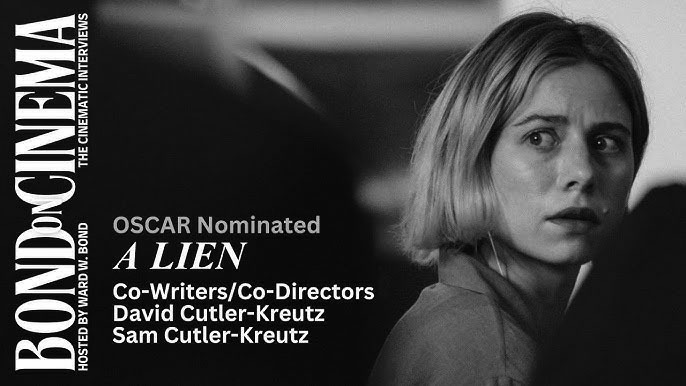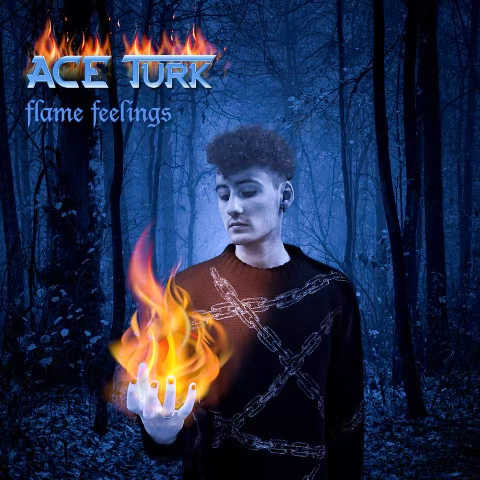Shortly after the release of their latest record, The Longer Now, I emailed back and forth with Actor|Observer frontman Greg Marquis. We talked about the themes of the record and how they tie in with his personal life, the technical process behind the record and a bit about what it’s like to be a post-hardcore band from New England.
You guys come from the Boston/New England scene where there’s so much talent to compete with; what does A|O do to stand out from the crowd?
There’s a lot we try to do to set ourselves apart in every aspect of this band, beyond just the music. We try to emulate and incorporate our eclectic influences into something that is ultimately our own. That can be difficult because our influences are all over the place, so finding our sound has taken some time. But now that we’ve found some balance, I think the result is pretty unique. We’re a “post-hardcore” band though, which can be a very confining label for those that know it. Growing up listening to a lot of bands with heavy breakdowns and catchy hooks, we’ve kinda felt like the standard “chugga-chugga” breakdowns are overdone, boring, and uninspiring at this point. So what we try to do is write something new to capture that intensity we once loved and incite a similar feeling but on a different level with either more complexity, melody, or rhythmic diversity. As a vocalist, I’ve also tried to veer away from the “good cop/bad cop” style of vocals, and instead work more and more on blending my melodies and screaming together, similar to the vocalists in bands like Balance And Composure and Norma Jean. It’s harder to do, but I like to challenge myself, and it feels more organic and cathartic.
You guys added Ryan to the band to take over your half of the guitar duties; did you find it difficult to transition from playing and singing to just being a frontman?
Only a little. Honestly, we always wanted to be a five-piece, and I wanted to be a front man from the start. But when we couldn’t find another guitarist back in 2010, I just figured I’d do both. After a while though, it wore on me. Being constrained behind a mic stand, playing a guitar, using a pedal board, singing, screaming; it all just became too much to focus on at once. I felt like my performance and stage presence were suffering, and I didn’t feel like I could enjoy myself or engage with the crowd as much as I wanted to. Musically, I didn’t feel like my playing or my singing was ever 100 percent. I needed to pick one and focus on it. So, seeing as voice is really my primary instrument, and seeing as I had already established myself as the lyricist and lead singer, I decided to focus on that and let someone else who was more committed to guitar take over. We’ve known Ryan for years now and we loved his previous bands. I wanted to get a better guitarist than me, who could contribute to songwriting and back-up singing, and who was more tech savvy to complement Alex’s ability. Ryan fulfills all of those requirements. The front man role took me a little getting used to, but I’ve spent so much of my life looking up to the front men of my favorite bands that I knew what sort of performer I wanted to be I still write guitar parts here and there, as part of the songwriting process.
How would you describe your new record The Longer Now to kids?
There was actually a lot of intent behind the lyrics, the flow, and the title of the album. Lyrically, it’s a lot of me trying to psychoanalyze myself and come to terms with the personal and existential issues that have been the root of my anxiety and depression for a long time. In most of the songs, I identify a problem either with myself, with others, the nature of our culture, or mere existence, and then I try to understand it so I can work through it and find my own solution to the problem. Honestly, writing this album has been the most therapeutic experience I’ve ever attained from music. Every single song really helped me sort out what I was feeling, what I wanted to say, and what I was going to do about it, all at a time when I really needed that. I had been anxious and depressed for a long time and it wasn’t getting better. I never felt content, just always on edge or waiting for something to finally give. After a couple years of therapy, I finally started taking anti-depressants to help clear away the dark cloud that was weighing me down. That and these songs have helped me get all the stuff off my chest that was making it hard to stay optimistic. I realized that a lot of my problems stemmed from this atheist/nihilist perspective I’ve developed over the past decade. This personal realization that there’s no inherent “meaning” to life, other than that which you ascribe to it, has made it difficult to fill that void with something sufficient. I know countless other people struggle with the same conflict, which is why it seemed important for me to address it in a public way and try to make something more out of it.
I know on the Circular Mill EP, there were a few book quotes and really well put lyrics. Are there similar themes on The Longer Now?
Actually, the album title is the only literary reference, but it’s the most important. It’s from a book that completely ties into everything I was just talking about. The Longer Now” is the title of the second chapter in a really thought-provoking novel called The Celestine Prophecy by James Redfield. I got that book as a hand-me-down last year from my brother Shawn, who had actually received it as a hand-me-down from our oldest brother Brian. So it kinda came full circle and hit me at the perfect time in my life. That book manages to tap into some unspoken collective subconscious that we all share with regards to spirituality, the lack thereof, and the meaning of life. It doesn’t matter whether you’re religious or not; that “big question” is something I think we all have in common, and if you haven’t made some sort of peace with it, then it can eat at you forever as it has for me. In the book, “The Longer Now” is described as a period of time in Western society that spans from the beginning of the last millennium to now. It basically explains how, over the course of this period, mankind has evolved from a mostly religious society—living with the purpose of pleasing God or some sort of deity in hopes of a prosperous afterlife—to a more scientific/post-God society, in which many people do not accept that explanation anymore and are seeking a more tangible purpose in life. In pursuit of “the truth,” we came up with the scientific method, followed by all these amazing feats in exploration, discovery, and technology, all of which have been incredibly valuable to human progress, but none of which have really been able to answer that age-old existential “question.” So in the meantime, we do our best to make ourselves comfortable and live the most “fulfilling” lives we can, focusing on personal progress, accomplishments, activities, contributions to humanity, or whatever we can, to attain a sense of value, keep ourselves preoccupied, and repress that dreadful ambiguity of why we’re here. “Spread Thin” (the second song on the album), touches on these topics, as well as my obsessive need to keep busy and accomplish something and fill up my time as much as possible, stressing myself out, running myself ragged, ultimately just to distract myself from the inherent meaninglessness of my life. The first song “Steel Yourself” ties into that as well, recognizing how living in fear of death and misfortune is a an unproductive way to spend that time.
The three interludes on the album really break up the onslaught with some careful crafted Post-Rock atmosphere. Can you touch on those songs?
The three interludes each follow a theme, mapping out a lifespan in the simplest, bleakest terms: “Absence” (before life), “Presence” (during), and “Disappearance” (after). That last one—the only one with lyrics and probably the most morbid—alludes to a place at the base of Mt. Fuji in Japan called Aokigahara, aka “the Suicide Forest,” where hundreds of people end their lives every year. Many of those who go there with that intent are actually uncertain about whether or not they want to die, so they tie ribbons or rope from tree to tree as they travel deeper into the woods, like a trail of bread crumbs, so they can find their way back if they change their mind. The symbolism of that stood out to me because amidst this existential crisis, it’s hard not to think of suicide as a way out. But as long as I have something tying me to what’s important (friends, family, etc.), I can go deeper into this philosophical darkness and hopefully, in doing so, learn more about myself and the world in which we live.
How do you think Jay Maas (producer) affected the sound of the record? Did he contribute a lot to the sound? Or was he more focused on capturing the sound in your head?
He was definitely the right guy for the job and is the main reason why the mix sounds so solid and organic. We went into his studio with the songs pretty much fully written, so he mostly focused on capturing the sound that we created, while offering suggestions along the way to refine them. He actually suggested recording all the guitars through the amp that Alex built because, despite all of Jay’s amazing equipment, he thought it had the best tone for what we were doing. One of the best decisions we made was playing guitars in the same room as the amp while recording to get the most natural spontaneous feedback possible. That ended up contributing greatly to the gritty identity of this record. We’re really proud of our collaboration with Jay because we didn’t have to rely on him to help us write our music. He liked what we had, but he also chimed in where it counted and helped us convey it in the best way possible.
You guys have had guest spots on both of your last two releases like our brother, Brian Marquis, on The Carbon Date EP and then Dylan Massucco and Steve Massaroni on Circular Mill. Are there similar features on the new record?
Actually Jay does a guest spot on the last song. We had some other people in mind, but they ended up not working out, so we figured “hey, Jay does a lot of vocals for Defeater, sounds awesome, and usually makes a signature appearance on most of the albums he produces, so let’s just have him do it!” His part in “Piece of Mind” came out really mean. The dude grits his teeth when he screams and sounds like he’s being ripped apart. It was a perfect pissed-off punk sound for the lyrics, “People like you are the reason why people like us exist.” I’m pretty sure he nailed it in two or three takes.
Do you have a favorite song from the record?
My personal favorite is “It’s Always The Weather” because of how difficult it was for me to admit to those feelings. That song helped me grow and helped me get through a very difficult time in my life. Ultimately it taught me a lot about empathizing with someone else’s depression and their need to move on in their life. New England can be very harsh in terms of weather, and I tend to resent the people I care about for moving away instead of riding out another miserable winter with the rest of us. But I had to realize that everyone is just trying to find their own peace, and some day I too may need to shake those roots. The flow of that song is very natural and honest to me, and the connection between weather depression is something I think many people can relate to.
Okay, last question. Imagine it’s the end of 2015. Looking back on the year, what things happened to make this year a success?
Well, putting out this album and our first music video has been a huge accomplishment for us already. Hopefully we’ll have vinyl for this album by the end of the year. We also hope to play another date of Warped Tour again and do a few longer tours taking us as far South and West as we can go. We’d like to start consistently seeing more people singing along to the new songs and coming out to our New England shows. Ideally, we’d also like to get on some bigger bills with international bands that we look up to and make some more connections there. One of my dreams is to be featured in Alternative Press Magazine, so that would be cool too. We’ve already started writing a little, so we’ll probably have some new songs finished for our next release by the end of the year, and if we’re lucky, maybe we’ll be able to sign to a legit label that will help us do all of this. It’s a lot, but any combination of those things would make this year a success to us.








